#怨��
Explore tagged Tumblr posts
Text

Meiko Kaji (梶芽衣子) in Lady Snowblood 2: Love Song Of Vengeance (修羅雪姫 怨み恋歌), 1974, directed by Toshiya Fujita (藤田敏八).
Scanned by me.
#Meiko Kaji#梶芽衣子#Lady Snowblood#Toshiya Fujita#Lady Snowblood 2: Love Song Of Vengeance#修羅雪姫 怨み恋歌#藤田敏八#lobby card#scanned by me#color lobby#snowblood2_lobby1#snowblood 2 graves
86 notes
·
View notes
Text


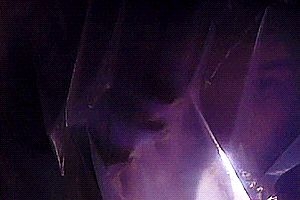
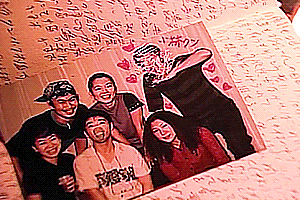




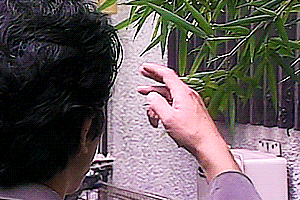

Ju-On: The Curse (2000)
#ju-on#ju-on: the curse#ju-on the curse#the curse#呪怨#horroredit#horroredits#movieedit#movieedits#filmedit#filmedits#kayako saeki#toshio saeki#my gifs#edit
173 notes
·
View notes
Text



Ju-on: The Curse 2 (2000) Directed by Takashi Shimizu
25 notes
·
View notes
Text

【𝑻𝒉𝒆 𝒊𝒓𝒊𝒔𝒆𝒔 𝒊𝒏 𝒕𝒉𝒆 𝒈𝒂𝒓𝒅𝒆𝒏 𝒂𝒓𝒆 𝒂𝒃𝒐𝒖𝒕 𝒕𝒐 𝒃𝒍𝒐𝒐𝒎.】
"The thought that they might bloom tomorrow made me feel a little more cheerful."
52 notes
·
View notes
Text


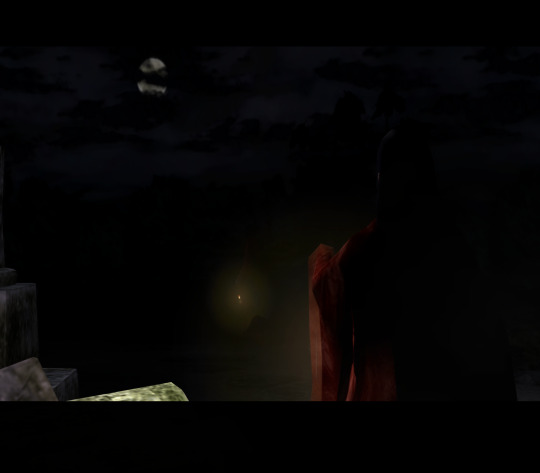
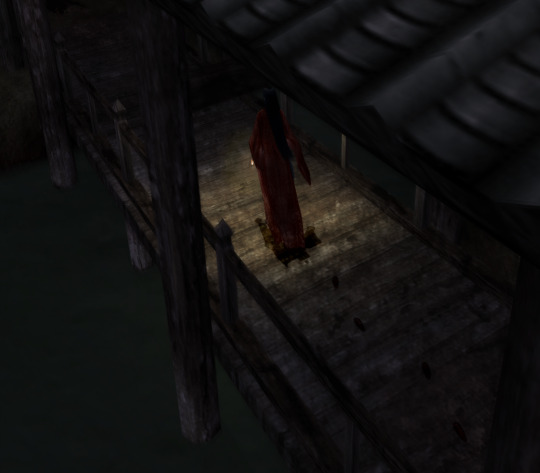
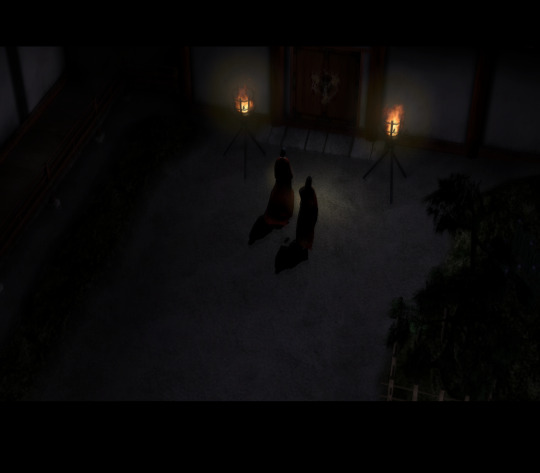

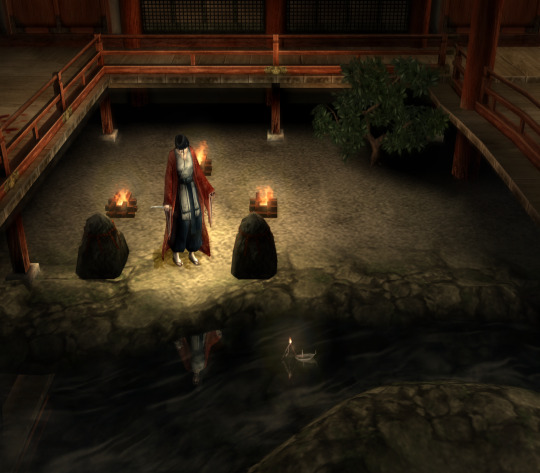


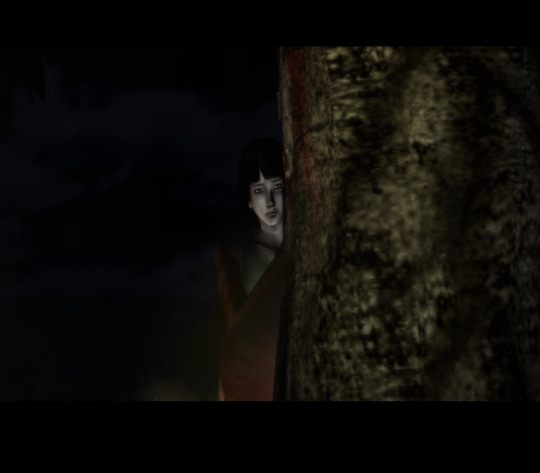
Kuon - 九怨 (2004)
Developer: From Software
#Kuon#九怨#From Software#Utsuki#PlayStation 2#PlayStation#Kwaidancore#Kaidan#Horror#Heian period#Video games
85 notes
·
View notes
Text
Wip Wednesday but it's friday
Ngl I feel like the mlc fandom is kinda sleeping on the sheer fuckery that is daohua, so here's ig now I'm going on a daohua tangent in my difanghua wip
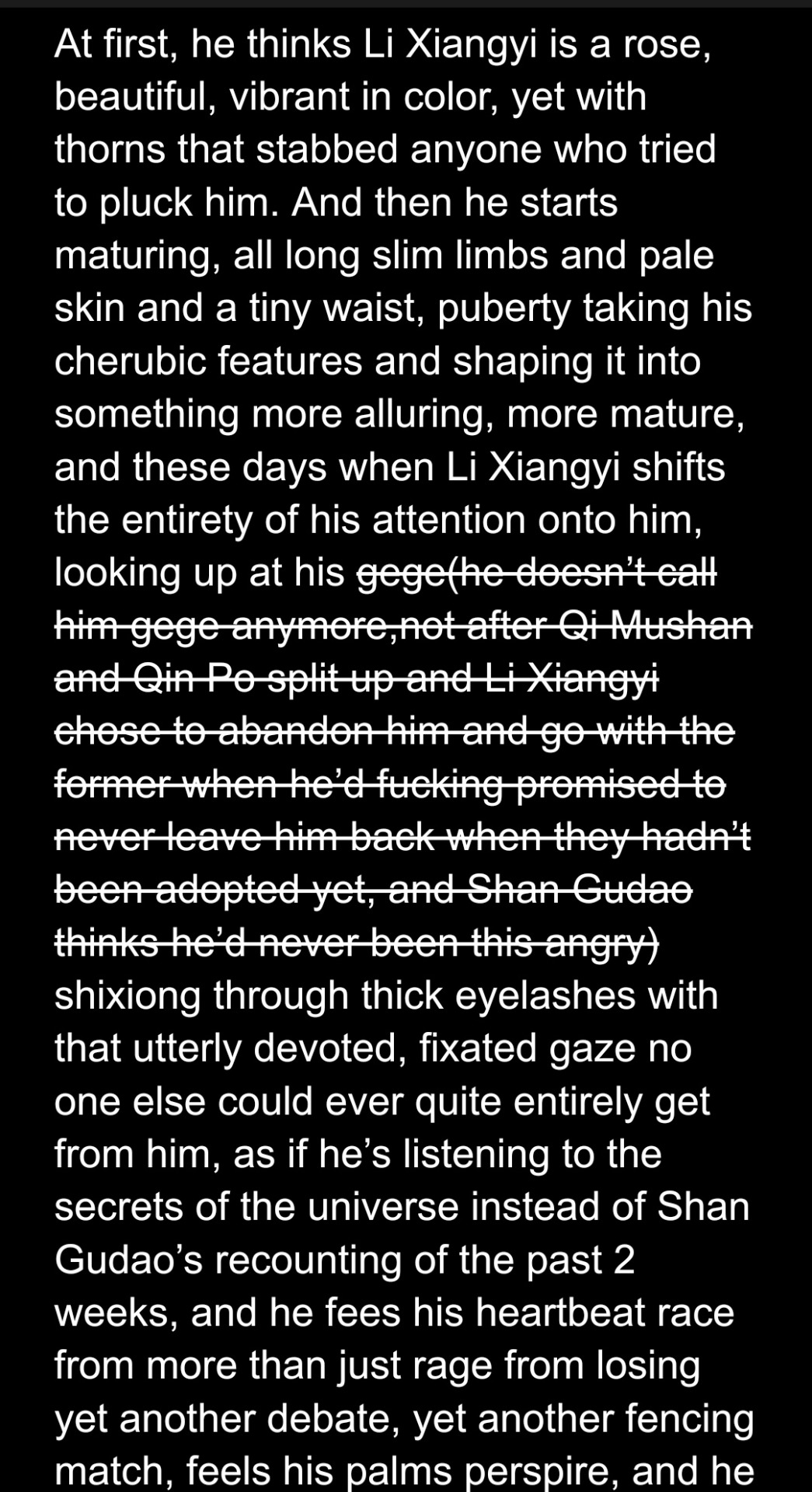
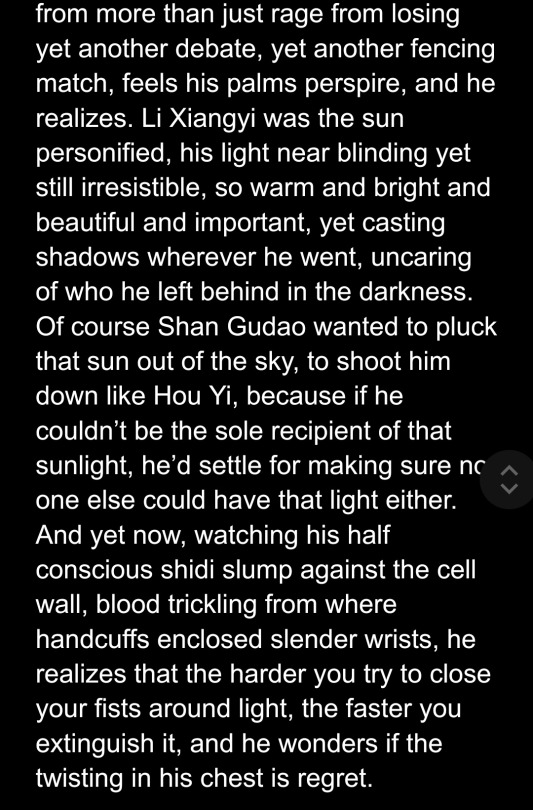
Yes Shan Gudao is still 10 years older than Li Xiangyi in this
#mysterious lotus casebook#li lianhua#li xiangyi#lian hua lou#Shan gudao#My writing#Daohua#別搞錯 師兄是變態 但是我們誰不是#論腹黑怨天尤人偏激師兄x只對師兄才傻白甜衷心師弟 的適配程度#黑月光師兄拿穩BE劇本
24 notes
·
View notes
Photo
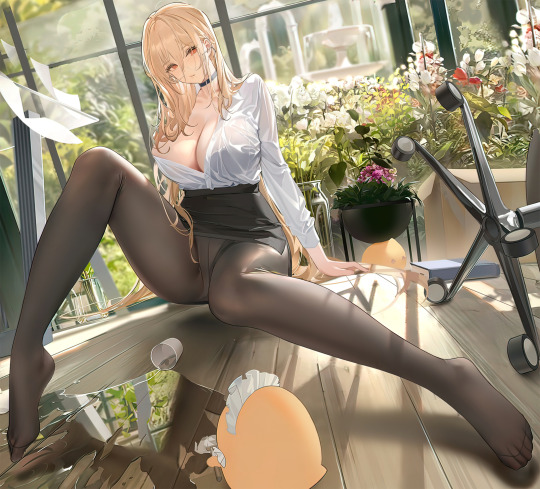
新しい秘書👣
206 notes
·
View notes
Text
春怨 - Spring Bitterness
春怨 - Spring Bitterness by 刘方平 (Liu Fangping, ~Kaiyuan Era, 713 to 741)
纱窗日落渐黄昏 shāchuāng rì luò jiàn huánghūn Beyond the silk window, the sun sets, yellow fading into dusk.
金屋无人见泪痕 jīnwū wú rén jiàn lèihén Within the gilded house, no one is here to see her trailing tears.
寂寞空庭春欲晚 jìmò kōng tíng chūn yù wǎn In the lonely silence, in the empty court, Spring longs for the close of day.
梨花满地不开门 líhuā mǎn dì bù kāi mén Parting’s blossoms carpet the way… to a door that does not open.
..............................................................................................
春怨 | Spring Bitterness is one of two homework poems (the other is 月夜 | Moonlit Night), for a poetry translation workshop hosted by Chenxin Jiang that ran from Jan to Feb of this year. Both are from the anthology 唐诗三百首 Three Hundred Tang Poems and were written by the Tang Dynasty poet and artist Liu Fangping.
Side note that no one asked for but that I always feel obliged to mention xD: Three Hundred Tang Poems does not collect the best of the best Tang poetry, that wasn’t the intention! Compiled by 蘅塘退士 Retired Master of Hengtang in 1763, Qing Dynasty, these were mostly popular works and poets from the Tang Dynasty during the Ming/Qing Dynasties (probably skewed toward his own preferences too lol) intended for a beginner or a child's gentle introduction to Tang poetry. This is also why many modern editions you will find at the bookstore today have the poems organized according to poetic form.
Poetry and Song
youtube
I found this cool video of a teacher, 吳秀真 Janice Wu, first reading Liu Fangping’s 春怨 then singing it in Hokkien. Sharing this here so we can appreciate the rhythm, rhyming and their effect in the poem together!
To help this along, another line which represents the tone pattern has been added. In Pinyin, the romanization system for mandarin which is used here, there are four tones.The first (◌̄) and second (◌́) tones are Level - longer sounds that are represented by the ‘_’ underscore in this notation. The third (◌̌) and the fourth (◌̀) pinyin tones are Oblique - shorter sounds represented by the ‘\’ backslash. The third tone is one that starts level, dips, then goes up again, and the fourth has an almost staccato rhythm. Words with Oblique tones are also bolded in the pinyin.
纱窗 | 日落 | 渐 | 黄昏 gauze window | sunset | gradual | twilight (lit. yellow, darkening) shāchuāng | rìluò | jiàn | huánghūn _ _ \ \ _ _
金屋 | 无 人 | 见 | 泪痕 gold house | no one | sees | tear tracks jīnwū | wú rén | jiàn | lèihén _ _ _ _ \ \ _
寂寞 | 空 庭 | 春 | 欲 晚 lonely silence | empty hall | Spring | desires lateness jìmò | kōng tíng | chūn | yù wǎn
\ \ _ _ _ \ \
梨花 | 满 地 | 不 | 开 门 pear blossoms | fill floor | no | open door líhuā | mǎn dì | bù | kāi mén _ _ \ \ \ _ _
Title
Now to the title - 春怨 chūn yuàn (lit. Spring Laments). There is a trope in poetry called 怀春 huái chūn embracing spring (lit.). You may have heard of the sexual connotation, and it can be that! But a lot of the time 怀春 is also a romantic thing. Being attracted, being drawn by beauty like the bright and lively sceneries of Spring, it’s natural to want to share the moment with someone close to her.
A twist on this trope comes when that person - a lover, a husband - isn’t around or can’t be around. There could be lots of reasons, ok? Like being called away to war, separated because of politics, posted to distant counties and difficulty uprooting the family to move for a three-year thing - in other words, life giving lemons in general or simply that his heart is not here. But whatever it may be, this is how you get a flaw, a regret, a dissatisfaction, some unhappiness in a life... and now we feel 怨.
Spring itself is also very about the world waking up again, a time of renewal where life is everywhere (or the seeds of it are being sown… literally!) and the year is young. A person’s youth is also often compared to Spring, and its passing or a ‘wasted youth’ is something worthy of regret.
The genre of poetry in which the speaker or main focus is a sorrowful lady usually for any form or combination of the mentioned reasons is called 闺怨 guī yuàn boudoir repining. It’s also called 宫怨 palace lament when the focus and setting is on the ladies - the empress, a concubine and so on - in the palace. (Roughly 10% of the Three Hundred Tang Poems are of the boudoir/palace repining genre. I really can’t help but wonder if this is one of the editor’s favoured tropes.) Such poems could be written by ladies, but the theme was often co-opted by men who used it to express adjacent feelings e.g. not being appreciated by their bosses (xD), failure to attain office via the state exams and so on. This is what has happened here for our poem of the day.
So now, Liu Fangping, what laments do you have for us this Spring?
[Family background check, praise and gossip - come get the scoop on Liu Fangping, beautiful man and mountain hermit from the Height of Tang Dynasty.]
Reading
The setting for this poem is in someone’s room, before their window. From it, they can see the fallen pear blossoms across the floor outside and the closed door.
Time for clue hunting to get some more context.
Who
The use of 纱 shā gauze, a light silk with an especially airy weave, as window screens was not something the average commoner family could afford.
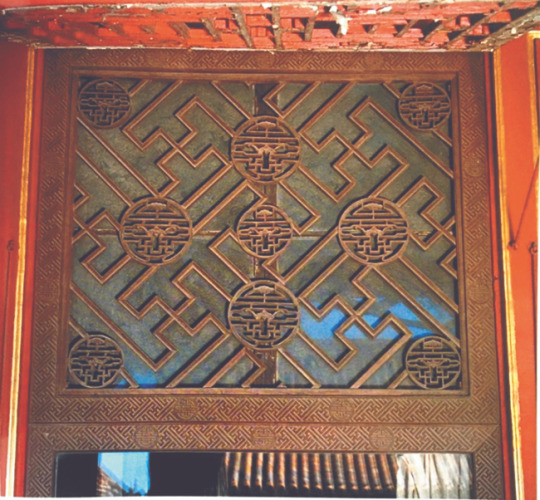
(Source)
We know the POV character is in their room and facing their window, enough to observe the sunset. They must be indoors. What sort of building? The next line tells us it’s a 金屋 jīnwū, literally translated, that would be golden house - but this is should not be taken literally. This is actually a reference to the ‘urban legend’ (or maybe RPF as we call it these days LOL) that gave rise to the idiom, 金屋藏娇 jīn wū cáng jiāo a golden house to keep one's mistress (lit.).
As collected by 班固 Ban Gu (32 to 92 CE) in his 汉武故事 Stories of Emperor Wu of Han, the story goes:
数岁,长公主嫖抱置膝上,问曰:儿,欲得妇不?胶东王曰:欲得妇。长公主指左右长御百余人,皆云不用。末指其女,问曰:阿娇好不?于是乃笑对曰:好!若得阿娇作妇,当作金屋贮之也。长主���悦,乃苦要上,遂成婚焉。 (Rough translation because I want to SLEEP) When he was couple of years old, the Grand Princess, (Liu) Piao carried him, put him on her knee and asked, “Child, do you want a wife?” The Prince of Jiaodong said, “Yes,” The Grand Princess pointed out over a hundred palace officials - similar to ladies-in-waiting - all of whom were refused. Finally, she pointed at her own daughter and asked, “Would a’Jiao suit?” And he smiled and said in reply, “Perfect! If I were to have a’Jiao as wife, I would build her a golden house and stow her away.” Delighted, the Grand Princess worked hard at convincing the Emperor to agree to their marriage and eventually succeeded.
Afterwards, when the Prince of Jiaodong also known as Liu Che (156 - 87 BCE) became the seventh emperor of the Han Dynasty, he built his Chen Jiao a beautiful palace and later officially made her his Empress. A fairytale might have ended there but while this is a story, it is also a story about real people… and so instead of a happily-ever-after, in real life we get this. The palace of gold that was built did not bring a’Jiao happiness, the childhood promise of love didn’t last half as long as the palace did, but the ironically romantic idiom that came from it outlasted them all.
Now back to Tang Dynasty in the 8th century!
Liu Fangping writes 金屋无人见泪痕. This 金屋 could hint at a broken promise of love, or it could be a hint at the identity of the lady in this poem. No matter the intent for both or either one of these though, what’s for sure is that the reason for 怨 is answered. More on this later.
When
There are three clues that answer this. First, line one tells us that it’s on an evening gradually painted in the colours of sunset (as seen through the silk screen window). Second, is how the poem’s POV tells us it seems to be late Spring in line three. Third, is the evidence that it is indeed late Spring - the fallen pear blossoms that are all over the floor in line four.
While we’re on the topic of pear blossoms, let’s segue into…
Imagery
Pear Blossoms
Observe the pear blossoms in this yard. How do you feel as you look at them?

(Source)
Each flower is so delicate and pure, their petals soft and velvety. Up close these white flowers give me a peaceful and refreshing vibe.
Pear blossoms bloom in late Spring when the weather has thoroughly warmed, around the solar term period of Qingming. They’re very fragile and are easily blown from their branches by the wind. But while they’re around and the pear trees fully blossomed, it’s a beautiful and tranquil sight to be appreciated.

(Source)
And we should appreciate them while they’re here because their flowering period is so short! All too soon, they’re strewn across the floor as time marches on.
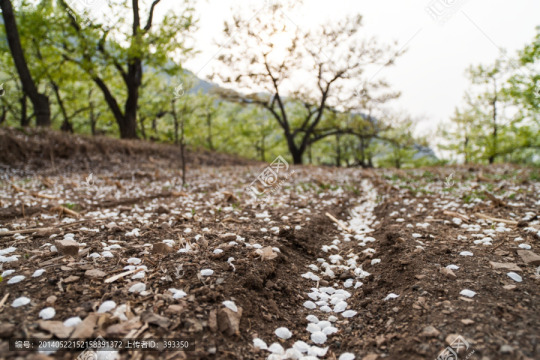
(Source)
The sight of pear blossoms carpeting the ground is a marker of the end of Spring.
梨 lí, the word for pear in pear blossom is a homophone of 离 lí, parting, and this coupled with its image of fleeting, fragile beauty often leads to association with grief and/or mourning. Following from there, the image of a ‘sorrowful woman confined in the boudoir as her youth passes’ is easily linked and a common accompanying theme. (Yes it’s a trope xD I’ll point it out again in the future as we encounter them.)
Side note: Taking the ‘unfavoured concubine’ reading of this poem, the fact that the sun isn’t down, yet the yard is littered with flowers that likely have been there for a while and there are no servants attending to that - all of this just emphasizes ‘unfavoured’. Few would make that extra effort on a team with no future!
Empty courtyard
It is getting dark, the day growing colder and it is so very quiet in this house. The loneliness is the trigger for her tears; both the quiet and the empty courtyard from which Spring is receding only amplifies it.
Setting sun
黄昏 huáng hūn is sunset. Literally, it reads yellow-dim/dark. The movement of the light is the only thing in this poem. The sunset is gradual, dimming from the warm yellow tones of the setting sun to shadows and darkness. But the fallen white petals and flowers in the courtyard are going to be very visible until the very last of the light is gone.
In this poem, each line is a different, standalone image that stacks to build the atmosphere, expressing 春怨 perfectly.
Framed by her silk screen window, the sun goes down on her gilded house where there is no one to see, or no one who will care to see her tears. Her emotion overflows this evening because the loneliness has grown to fill her neglected yard, and she is accompanied only by the silence and the last remnants of her Spring. There is nothing for her outside, and no one comes. The door does not open.
Some pictures...
It's a rather depressing note to leave this post on, so I thought it might be on interest to all of us how a palace or a house might have looked!
Here is the scene of a banquet in a Tang Dynasty palace as imagined by an artist of the Five Dynasties or Song Dynasty some two to four hundred years later.
This painting is from the The Metropolitan Museum of Art. Visit the source for the writeup and description!

(Source)
This is an imagining of how a Tang (618 - 907) Palace concert might have looked like by a Yuan (1279-1368) Dynasty artist. Again, check out the description at the source!

(Source)
24 notes
·
View notes
Text

魯迅の思想-民族の怨念 横松宗 河出書房新社 装幀=川上成夫
7 notes
·
View notes
Text

👹怨霊👹
#art#artwork#illustration#artists on tumblr#artist#markersdrawing#markers#japan#japanese folklore#oni#鬼#怨霊#dark fantasy art#dark fantasy
7 notes
·
View notes
Text

Chitti's so smol compared to the people around him.
56 notes
·
View notes
Text
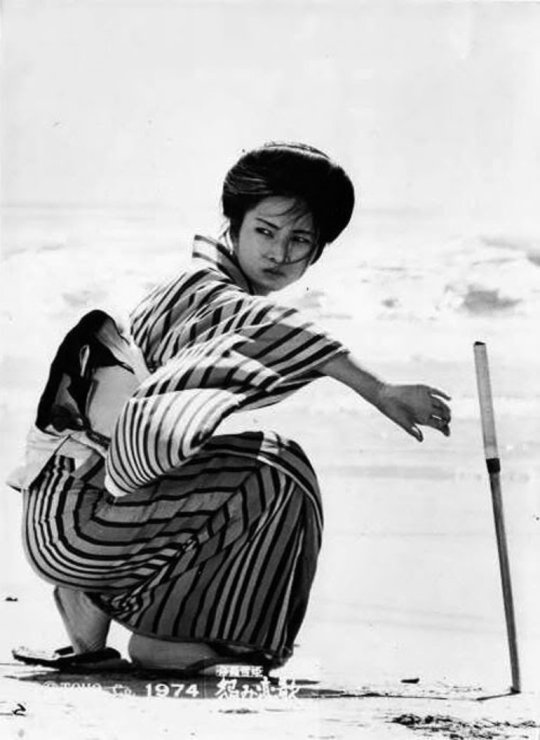
Meiko Kaji (梶芽衣子) in Lady Snowblood 2: Love Song Of Vengeance (修羅雪姫 怨み恋歌), 1974, directed by Toshiya Fujita (藤田敏八).
#Meiko Kaji#梶芽衣子#Lady Snowblood#Toshiya Fujita#Lady Snowblood 2: Love Song Of Vengeance#修羅雪姫 怨み恋歌#藤田敏八#lobby card#snowblood 2 sword#snowblood 2 beach
523 notes
·
View notes
Photo



If you're someone who likes to chill and vibe play Kuon ✨
If you're an adrenaline junkie who gets off on feeling like they're gonna die at all times play Haunting Ground✨
If you're a just an all around masochist play Rule of Rose✨
I gotchu fam✨ Trust me i am a doctor 😎✨
141 notes
·
View notes
Photo





Ju-On: Black Ghost
133 notes
·
View notes
Text

【九怨】
"This is just to satisfy my curiosity."
113 notes
·
View notes
Text






Ju-on: The Grudge 2 (2003) Directed by Takashi Shimizu
2 notes
·
View notes